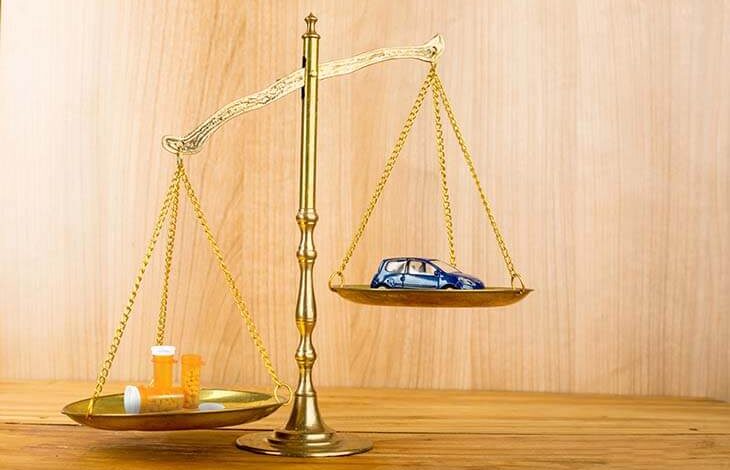Committing to addiction treatment is a challenging, humbling, and commendable process that affects the individual with the substance use disorder, but it also affects their family members. Each family member who experiences their loved one struggling with addiction often endures many painful emotions, such as hopelessness in response to substance abuse. Family members may feel at a loss when seeing a loved one caught in the grips of substance abuse. Helplessness, guilt, anger, confusion, frustration, and sadness are all common emotions that family members experience. There is no shame in feeling these strong negative emotions as these feelings are normal. Addiction is often called a “family disease” due to the toll on family members who are challenged by addiction. While the impact of an individual’s struggle is wide-reaching, the family can also play an essential role in recovery. Akua Mind and Body believes that the success of an individual in recovery depends heavily on the role of their support system in their recovery process. Family support can play a huge factor in the recovery journey, not only for the individual but for the family unit, as often, the family unit experiences a state of mental and emotional disarray. Addiction is a disease that often devastates the family unit, upturning family roles and potentially developing into a dysfunctional family unit. As a result, when a loved one enters addiction recovery treatment, their family needs to play an active role, not only for the well-being and success of the individual but also for each family member and the family as a whole.
Family Therapy
Attending family therapy with your loved one in recovery not only helps your loved one’s pathway to success, but it can also help each family member individually. Often family members enable during the active addiction, which can create many dysfunctional roles and relationships. Family therapy helps each member learn about the disease of addiction, the recovery process, and the intricate role they play in the addiction and recovery process. Family therapy can help enlighten family members on enabling behavior, family dynamics, and family dysfunction and can help mold unhealthy thoughts and behaviors into positive and supportive actions to benefit the individual in addiction recovery and the family unit. Family therapy also teaches family members to support their loved ones through the recovery process, warning signs associated with relapse, healthy emotional regulation skills, and effective communication skills. According to National Institute on Drug Abuse (NIDA), addiction treatment centers that offer family therapy experience better success rates than treatment centers that do not offer family therapy in addiction recovery. Multiple types of family therapy can benefit you, your family, and your loved one in recovery.
Family Support System
If you are in addiction recovery, you need a strong support system, which often comes from your family. Upon entering therapy, the admission team will ask many questions regarding your support system and your family dynamic, which is a huge factor in the level of treatment care you will need. If you do not have a strong support system, you will most likely benefit from a higher level of care. A family support system is a key element in the addiction recovery process, and family members can not only help you with your emotional and mental needs (mood swings and post-acute withdrawal symptoms). Still, they can also help you with financial hurdles, working through urges and cravings, and feelings of loneliness. As a family member, you can plan events and outings with other family members and your loved one in recovery, schedule regular meals together and find other activities to get involved in together to encourage your loved one to get into the community. Family members can do this by encouraging healthy social activities and helping your loved one find outlets to meet new friends and positive influences.
Relapse Prevention and Accountability Correlating with Family Support
As a supportive family member, you can help your loved one in treatment take the necessary precautions in relapse prevention by learning and recognizing relapse warning signs, which can include the following:
Not attending treatment, support groups, or meetings
Spending time with people who he or she previously drank or used with
Struggling with stress or painful emotions that might lead to self-medication
Reacting in a defensive way when any changes in attitude or behaviors are brought up
If you notice your loved one slipping into old habits as a family member, it is important to hold them accountable instead of letting their behavior slide (enabling). Holding your loved one accountable means that you must set healthy boundaries and maintain these boundaries even during the most trying times. As a loving family member, you can work to reinforce the following:
Foster a life that supports recovery and make necessary lifestyle changes
Promote complete honesty
Encourage reaching out for help
Engage in self-care practices
Hold your loved one accountable for unhealthy words and behaviors
AKUA Mind and Body and Family Support
Seeking professional addiction treatment can help individuals overcome their addiction to substances and assist individuals in treating their underlying mental health disorder.
AKUA Mind and Body is a full-service addiction and mental health treatment center with multiple locations across California. We specialize in treating individuals struggling with mental health disorders, substance use disorders, and co-occurring disorders. We offer detoxification, medication-assisted treatment, and behavioral therapy approaches at all levels of care, ranging from residential settings to outpatient treatment. We pride ourselves on having a compassionate and knowledgeable treatment staff who cares about each client and their family.
Akua Mind and Body also offers a Free virtual support group twice a month.




